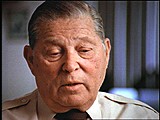You searched for: poland
<< Previous | Displaying results 1491-1500 of 1567 for "poland" | Next >>
-
Sam Itzkowitz describes forced labor in the gravel pits of Auschwitz
Oral HistoryThe Germans invaded Poland in September 1939. When Makow was occupied, Sam fled to Soviet territory. He returned to Makow for provisions, but was forced to remain in the ghetto. In 1942, he was deported to Auschwitz. As the Soviet army advanced in 1944, Sam and other prisoners were sent to camps in Germany. The inmates were put on a death march early in 1945. American forces liberated Sam after he escaped during a bombing raid.
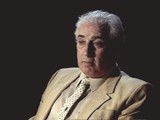
-
Julian Noga describes conditions in Flossenbürg
Oral HistoryJulian's Catholic parents had settled in the United States, but his mother returned to Poland. In 1939, Julian was deported to Austria to do farm labor after he was caught for hiding a rifle. On the farm he met the landowner's daughter, Frieda, his future wife. He was arrested in 1941 because relationships between Austrians and Poles were considered illegal and in 1942 he was deported to the Flossenbürg camp in Germany. During a forced march in 1945, he was liberated by US forces. Julian and Freida…
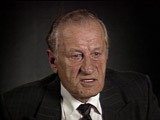
-
Selma (Wijnberg) Engel describes forced labor sorting the clothing and possessions of people deported to Sobibor
Oral HistorySelma was the youngest of four children born to Jewish parents. When she was 7, Selma and her family moved to the town of Zwolle where her parents ran a small hotel. When the Germans invaded the Netherlands in 1940, they confiscated the hotel. The family had to live in a poor Jewish section of the town. Selma went into hiding but was betrayed and then sent to the Westerbork camp. In April 1943 she was deported to Sobibor, where she worked in the clothes sorting area. There, the prisoners tried to pocket…
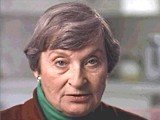
-
Bart Stern describes the role of friendships in survival at Auschwitz
Oral HistoryFollowing the German occupation of Hungary in March 1944, Bart was forced into a ghetto established in his home town. From May to July 1944, the Germans deported Jews from Hungary to the Auschwitz killing center in occupied Poland. Bart was deported by cattle car to Auschwitz. At Auschwitz, he was selected to perform forced labor, drilling and digging in a coal mine. As Soviet forces advanced toward the Auschwitz camp in January 1945, the Germans forced most of the prisoners on a death march out of the…
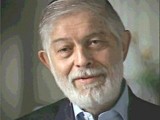
-
Ruth Webber describes escaping from a selection held in the Auschwitz infirmary
Oral HistoryRuth was four years old when the Germans invaded Poland and occupied Ostrowiec. Her family was forced into a ghetto. Germans took over her father's photography business, although he was allowed to continue working outside the ghetto. Before the ghetto was liquidated, Ruth's parents sent her sister into hiding, and managed to get work at a labor camp outside the ghetto. Ruth also went into hiding, either in nearby woods or within the camp itself. When the camp was liquidated, Ruth's parents were split up.…
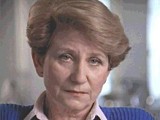
-
Ruth Webber describes her mother's efforts to ensure her children's survival
Oral HistoryRuth was four years old when the Germans invaded Poland and occupied Ostrowiec. Her family was forced into a ghetto. Germans took over her father's photography business, although he was allowed to continue working outside the ghetto. Before the ghetto was liquidated, Ruth's parents sent her sister into hiding, and managed to get work at a labor camp outside the ghetto. Ruth also went into hiding, either in nearby woods or within the camp itself. When the camp was liquidated, Ruth's parents were split up.…
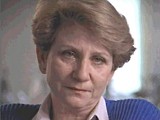
-
Thomas Buergenthal describes being reprieved from a massacre of children while he was in a forced-labor camp in Kielce
Oral HistoryThomas's family moved to Zilina in 1938. As the Slovak Hlinka Guard increased its harassment of Jews, the family decided to leave. Thomas and his family ultimately entered Poland, but the German invasion in September 1939 prevented them from leaving for Great Britain. The family ended up in Kielce, where a ghetto was established in April 1941. When the Kielce ghetto was liquidated in August 1942, Thomas and his family avoided the deportations to Treblinka that occurred in the same month. They were sent…
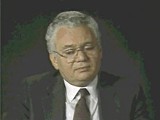
-
Aron (Dereczynski) Derman describes deportations from the Grodno ghetto in November 1942
Oral HistoryAron was born to a middle-class Jewish family in Slonim, a part of Poland between the two world wars. His parents owned a clothing store. After studying in a technical school, Aron worked as a motion-picture projectionist in a small town near Slonim. The Soviet army took over Slonim in September 1939. War broke out between Germany and the Soviet Union in June 1941. Aron returned to Slonim. The Germans soon occupied Slonim, and later forced the Jews into a ghetto. Aron was forced to work in an armaments…
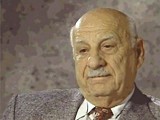
-
Bart Stern describes deportation to Auschwitz
Oral HistoryFollowing the German occupation of Hungary in March 1944, Bart was forced into a ghetto established in his home town. From May to July 1944, the Germans deported Jews from Hungary to the Auschwitz killing center in occupied Poland. Bart was deported by cattle car to Auschwitz. At Auschwitz, he was selected to perform forced labor, drilling and digging in a coal mine. As Soviet forces advanced toward the Auschwitz camp in January 1945, the Germans forced most of the prisoners on a death march out of the…
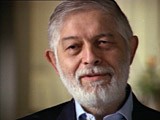
-
Leopold Page describes the liquidation of the Krakow ghetto and escaping from the ghetto
Oral HistoryLeopold was a teacher in Krakow, Poland, when World War II began in 1939. While serving in the Polish army, he was captured by Germans. Leopold escaped from a prisoner-of-war transport. Soon after, he met the German industrialist Oskar Schindler. The two became friends. Leopold was forced to live in the Krakow ghetto. He later worked in Schindler's factory in Bruennlitz. He and the other Jews who worked there were treated relatively well and protected from the Nazis. After the war, Leopold moved to the…
